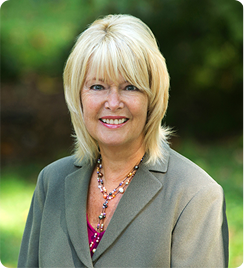
Ever wonder what influences you to change direction after being on a steady path? Sometimes it’s your deliberate act and other times it’s more unanticipated. You go along in life taking care of business, often operating on auto pilot and wham, something hits you over the head. Maybe it’s a break up, a new boss, you get sick, or your last child leaves home. But something happens to get your attention.
Then the questions start flowing: Why am I here? What am I doing? Am I happy? What do I want? You begin to question everything that is familiar. You wonder what would happen if you changed direction. An opening beckons.
Molly worked hard for 15 years climbing the ladder in her company. She was successful and engaged at work. The only things missing were a partner and children, or so she thought. Then Molly met Howard. He was someone who shared many interests. They began to spend time together and Molly’s life outside of work became rich and full.
Both Molly and Howard are committed professionals in their fields and yet something else began calling them. They talked of living overseas and helping those in need. Their meeting changed the plans they had previously designed. Together they created a new vision, which they are carrying out together.
Have you ever met someone who changed your life? Maybe it was a teacher, or a classmate/colleague, or a new friend. But you know that person touched your life in a way that changed it forever. Maybe they introduced you to something new or their presence stimulated you to think in creative ways and take risks. One benefit of interacting with new people is an infusion of innovative ideas and possibilities.
Ingie was frustrated in her job. During two years, her efforts to gain greater responsibility were stymied. She watched others get promoted who were less skilled than she. She questioned what she was missing and how long she should wait. Then Ingie met Sharon at a networking event. They shared some professional interests and held a captivating conversation. When Ingie took Sharon’s card, she noticed she was a manager. She decided to contact Sharon and set up an informational interview which eventually led to a job offer for Ingie. She made the move and is now working at a level more aligned with her skills and passions. Ingie is thrilled.
Sometimes it takes a significant loss to get our attention and lead us to a turning point. It can be a lost relationship, a health scare, a death of someone close, or a layoff. In these extreme times of stress we may be awakened to what we value. Instead of proceeding on automatic, we stop and take notice of what’s most important. This is an opportunity to reflect and adjust our lives and often a time of energy renewal.
“Sometimes the course of our lives depends on what we do or don’t do in a few seconds, a heartbeat, when we either seize the opportunity, or just miss it. Miss the moment and you may never get a chance again.”
Aidan Chambers
Have you ever been fired from a job only to have that be the BEST thing to happen to you? You sink or swim to the next possibility. The same happens with divorce or break ups. At the time you wonder how you’ll survive. But when you eventually do, you are grateful for the new opportunity. Once you lift your head above the pain, your eyes notice a fresh vista.
Ways to make use of Turning Points:
Look back on your life and learn from those events
Take careful stock when something shakes up your life
Keep an open mind to the possibilities
Map out a few alternatives
Try two or three
Celebrate your new direction
Embrace change and see you on the path!







 Remember Bob Dylan’s song “The Times They are A-Changin”? That was the 60’s, but people today appear to be in a swirl of change also. Is it just me or is technology changing so fast, it’s hard to keep current? Oh, I know the kids seem to be on top of it, but what about their parents or their grandparents?
Remember Bob Dylan’s song “The Times They are A-Changin”? That was the 60’s, but people today appear to be in a swirl of change also. Is it just me or is technology changing so fast, it’s hard to keep current? Oh, I know the kids seem to be on top of it, but what about their parents or their grandparents?






